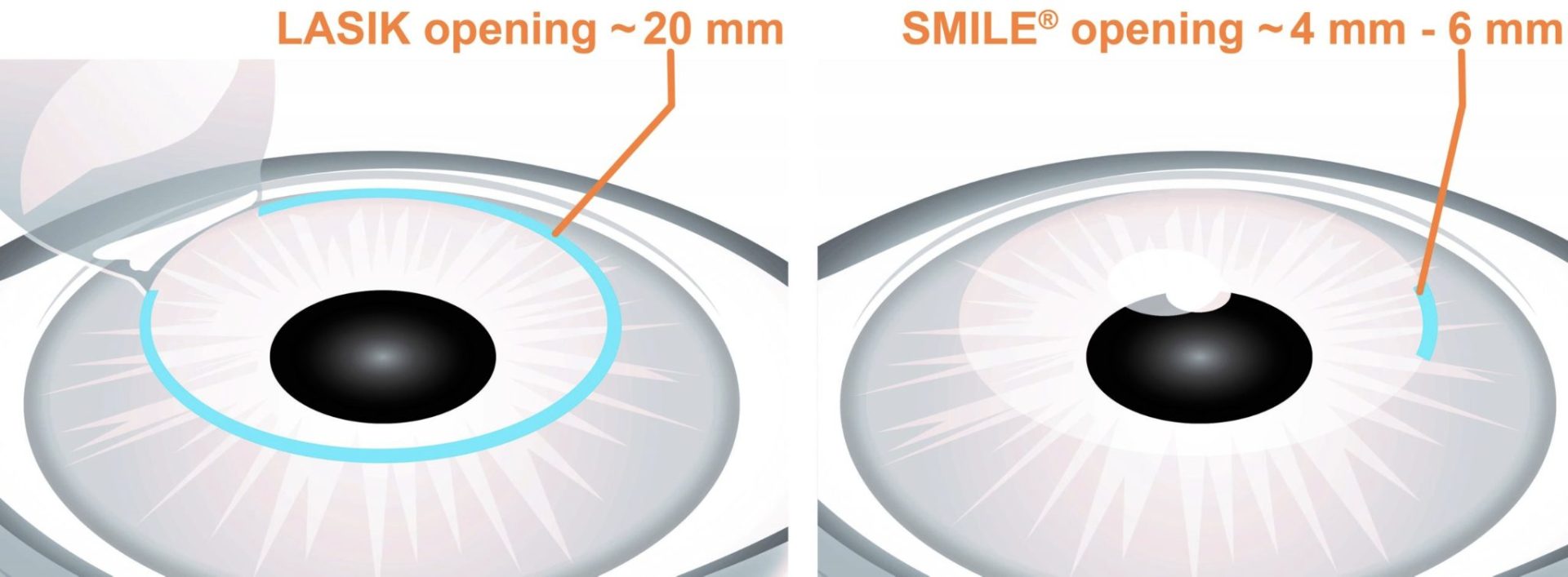You may have doubts about whether or not you are a good candidate for LASIK surgery when you start thinking about it. You may think your eyesight is too bad for laser eye surgery to help. Surprisingly, your prescription is one of many factors doctors consider when deciding if you’re a good candidate. Talking to a LASIK specialist about your options is a good idea. Like any other medical procedure, this one isn’t right for everyone. What are doctors typically looking for? Here’s a rundown.
Page Contents
LASIK surgery Necessary Minimums
Everyone must meet some prerequisites. LASIK is only an option for you if you satisfy these requirements. Patients must always:
Benefit from clear corneas.
Not be experiencing a current condition affecting the eyes.
Need corrective lenses or 20/40 vision or better to succeed.
Maintain a consistent prescription for eyewear over time.
To determine if any other factors may affect your LASIK candidacy, your ophthalmologist will perform a thorough examination before performing the procedure.
Is LASIK surgery right for you? Are you familiar with the LASK procedure and any potential risks it may entail? Do you qualify for LASIK eye surgery? Asking if you know if LASIK surgery could help you get better eyesight. If you are still determining the answers to the above questions, it is recommended that you have a detailed conversation with your ophthalmologist before deciding on Lasik surgery in India.
Unfortunately, LASIK surgery isn’t a good fit for everyone. Ophthalmologists evaluate each potential LASIK patient against criteria designed to ensure the best visual outcomes with the fewest possible risks.
Requirements For Lasik Surgery Eligibility
The following factors determine patient eligibility for LASIK treatment:
No preexisting eye conditions that could worsen after LASIK surgery have been detected. Several other factors can also compromise the success of the operation. Deterioration of eyesight, keratoconus, ocular infections like uveitis, keratitis, and herpes simplex, dry eyes characterized by a decrease in tear production, ocular injuries, glaucoma, cataracts, and lid disorders are all examples of such conditions. Postoperatively, those with dilated pupils may see halos, glare, and ghost images.
Patients who undergo LASIK must be in good health, not just in their eyesight. The eye of a LASIK patient needs time to recover. When someone is getting better, the immune system is crucial. Rheumatoid arthritis, human immunodeficiency virus infection, systemic lupus erythematosus, and other autoimmune disorders may disqualify a patient from LASIK surgery.
If you have certain medical conditions, including high blood pressure, diabetes, heart disease requiring a pacemaker, or vascular disease, LASIK is not an option.
To have LASIK surgery, the patient’s vision must have been stable for some time. Myopic individuals typically experience ongoing visual changes throughout adolescence. Furthermore, other conditions such as pregnancy, breastfeeding, and long-term use of steroids also cause vision changes.
Learn about the ins and outs of LASIK surgery, including potential risks and complications. Have a conversation with your eye doctor if you need access to such materials.
To get everything else done before your surgery, you should also familiarise yourself with postoperative eye care. Some potential postoperative complications are dry eyes, under-correction, astigmatism, and vision changes.
Please spend a few weeks without your contact lenses: Wearing them alters the shape of your cornea, making it difficult for your doctor to get an accurate reading. This could have undesirable consequences. The surgeon will examine your eyes and give instructions on how to care for your contact lenses beforehand.
Avoid having overly optimistic hopes after surgery. Although LASIK is a very safe surgery and usually results in clear vision, it is essential to remember that these measurements are made under ideal conditions. Reading or doing other close-up work in low light may require using corrective lenses. Remember that your eyes’ ability to focus and see clearly will naturally decline with age, so your vision may not be as sharp as it was right after surgery.
When determining LASIK candidacy, one additional factor is a patient’s age. Myopic eyesight is highly unstable until the age of 18 when most people stabilize. Consequently, the candidate for LASIK surgery should be at least 18 years old. Presbyopia, which makes it difficult for people over 40 to focus on near objects, can be corrected with LASIK surgery. This does not rule out LASIK surgery altogether, but it may affect the final results.
Hormonal shifts: unstable eyesight as a result of hormonal fluctuations. Both pregnancy and breastfeeding cause noticeable changes in hormone levels. For this reason, women experiencing these symptoms should hold off until their vision has stabilized. Before undergoing LASIK , a patient’s vision should be measured. People with a vision that falls within the following parameters are considered good candidates for LASIK surgery:
Maximum -12 diopters for nearsightedness.
up to +6 diopters for extreme farsightedness
Astigmatism up to 6 diopters
After evaluating your eye and general health, your doctor will give you the best advice about whether or not you are a good candidate for LASIK surgery and whether or not it will provide the expected results.



